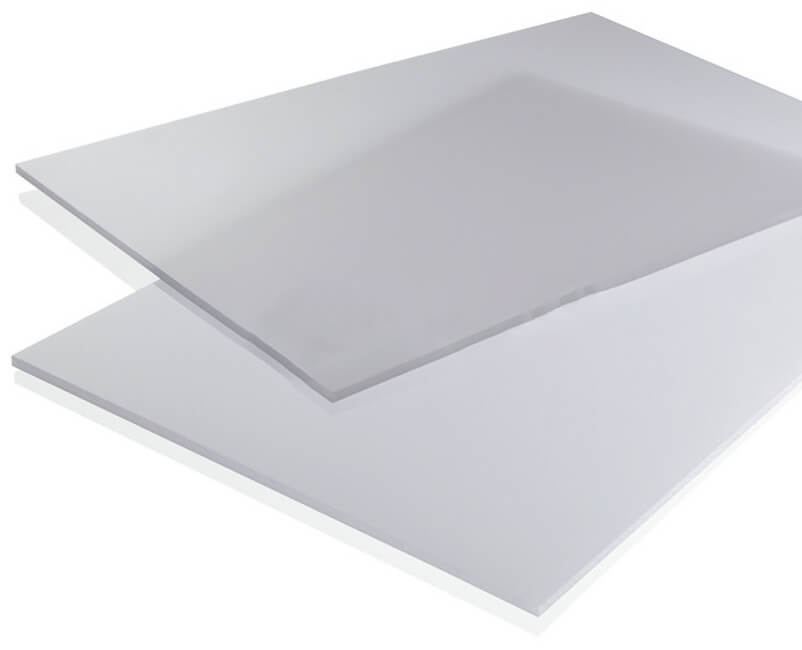PS Diffusion Sheets offer several advantages when compared to other optical diffusion materials such as PMMA (Polymethyl Methacrylate), PC (Polycarbonate), and PET (Polyethylene Terephthalate). Below are the key advantages of PS diffusion sheets:
PS is one of the most affordable plastic materials available. Compared to PMMA and PC, PS offers a more economical solution, making it ideal for large-scale applications where cost efficiency is critical.
PS can be easily processed using common manufacturing methods like extrusion, injection molding, and thermoforming. This results in reduced production costs, which is a significant advantage for manufacturers and end-users looking to minimize expenses.
PS materials generally exhibit good optical clarity, which is crucial for applications that require light transmission. This transparency helps maintain the performance of the light diffusion process, while also allowing for efficient light scattering.
PS diffusion sheets are capable of effectively diffusing light without significantly reducing light output, which is essential for applications such as LED backlighting and display systems.
PS sheets are relatively easy to process. They can be molded into various shapes and thicknesses without the need for complex processes. This flexibility makes PS ideal for mass production of optical diffusion materials, while other materials like PMMA and PC often require more specialized processing techniques.
PS sheets can be easily fabricated with different surface textures (e.g., microprisms or diffusing patterns), which is essential for controlling the diffusion characteristics. This ability to fine-tune the diffusion pattern is a key advantage over more rigid materials.

PS has a lower density compared to materials like PMMA and PC, making PS diffusion sheets lighter in weight. This characteristic is beneficial in applications where weight is a concern, such as in displays, signage, and automotive lighting systems.
Being lightweight, PS diffusion sheets also lower transportation and handling costs, especially when dealing with large quantities or large-size sheets.
PS sheets maintain their shape and structure well under normal temperature and humidity conditions, which ensures long-term performance without significant deformation or distortion. While PS does not have the same high thermal resistance as PC, it still performs well under standard operating conditions.
The dimensional stability also means that PS diffusion sheets can be easily cut or shaped to specific sizes without excessive warping or shrinkage, providing flexibility during installation.
PS is recyclable, although not as widely recycled as PET. Its ability to be processed into new products or used in the production of other materials contributes to its environmental friendliness.
PS diffusion sheets generally emit fewer volatile organic compounds (VOCs) and odors compared to some other plastics like PVC, making it more suitable for environments that require low emissions.
PS diffusion sheets excel in applications where light diffusion and uniformity are important but where extreme environmental conditions (such as high UV exposure or high temperatures) are not a concern. They are well-suited for indoor uses like LED backlighting in monitors, TVs, and signage.
Although PS is less UV-resistant than materials like PMMA, it performs adequately in many standard indoor applications where UV degradation is not a major concern.
PS diffusion sheets are more durable than glass and other more brittle optical materials, offering increased resistance to cracking and breaking. While it doesn't offer the same impact resistance as PC, it is still more robust than glass, making it safer for use in applications where the material may be subject to physical stress or vibration.
PS sheets can be engineered to provide specific light diffusion characteristics such as desired diffusion angles or scattering patterns. This can be particularly useful in applications like LED lighting and displays, where even light distribution is crucial for performance.
PS has low moisture absorption compared to materials like PET or PC. This characteristic helps maintain the material's optical properties and dimensional stability in environments with varying humidity levels.
Comparison to Other Materials
PS diffusion sheets are an excellent choice for many applications, particularly where cost, ease of processing, light weight, and good optical performance are critical. While they may not offer the high-end durability or UV resistance of materials like PC or PMMA, they are still widely used due to their affordability, versatility, and sufficient performance in many standard lighting and display applications.
 English
English 中文
中文 Español
Español


